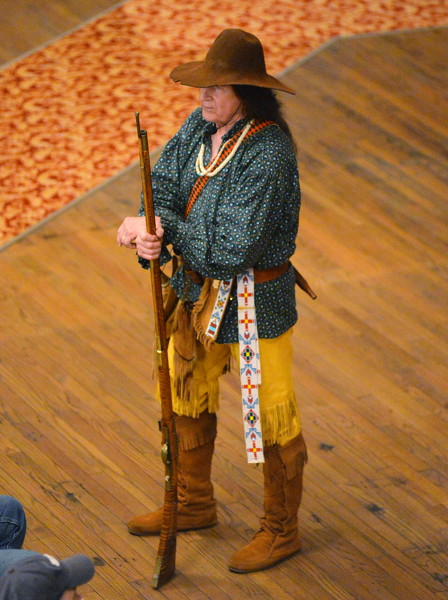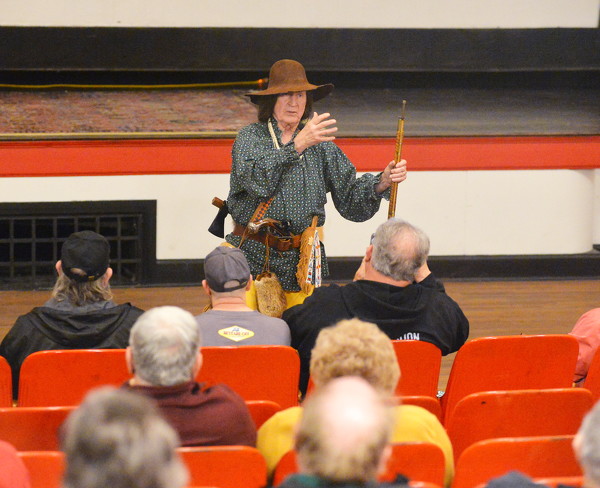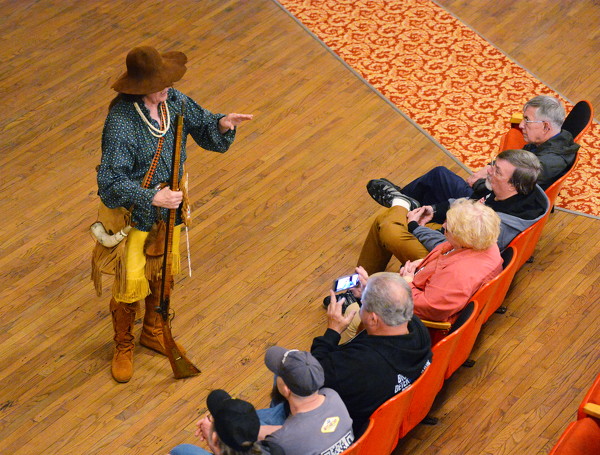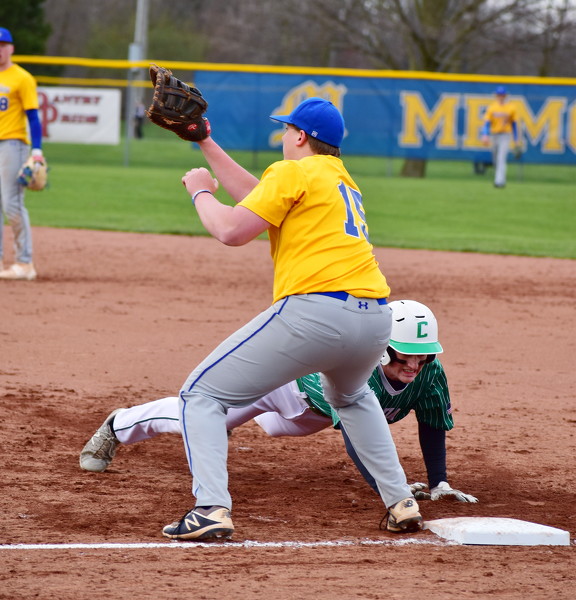
Simon Girty was an American-born frontiersman and soldier who served as an interpreter for the Native Americans during the American Revolution.
ST. MARYS- On Wednesday, The Daily Standard caught up with Simon Girty (portrayed by Ken Hammontree) ahead of his talk at the St. Marys Theater and Grand Opera House.
Simon Girty is known as the "White Savage of the Forest" for aiding Native Americans in defending their land. He was adopted by members of the Seneca tribe and witnessed the U.S. government's betrayal of Native Americans as a military interpreter.
Girty's brother owned a trading post called Girty's Town in what is present day St. Marys.
Girty told the audience he was on his way to join Shawnee chief Tecumseh who sought to assemble a Native American confederacy to fight against the U.S. in the late 18th century.
The Daily Standard: What was life like as a frontiersman?
Simon Girty: It was dangerous. Life was short although Manitou Moneto (the great spirit) blessed me with old age. Other than that, the average age for a woman would be 28 to 30 years old, if she lived that old. For a man, normally in their 50s. Life was very dangerous on the frontier.
DS: Where did you grow up?
Girty: I was born and raised outside of a little village called Harrisburg, Pennsylvania, around 1750. We moved from there after my father was killed. My father was an alcoholic. He was killed by an Indian by the name of Fish. We were orphaned for a while there because my mother left and then she came back. She met this man who lived in our family for a while by the name of John Turner. He killed the Fish. His reward was Wallah, my mother. Why not? They got married and I had a stepbrother, John Turner, and we moved over to Juanita River, close to the Allegheny River. That's where all of us resided until we were captured by the Indians, who separated our family.

Simon Girty, portrayed by Ken Hammontree, speaks to an audience of roughly 50 people at the St. Marys Theater and Grand Opera House on Wednesday evening.
DS: How did you learn to become an interpreter?
Girty: After we surrendered the fort, Fort Granville, my stepfather John Turner was killed, burned at the stake. My mother and her son, John Turner, they were taken away in captivity.
I was adopted by the Senecas. Every one of my brothers had a different tribe. Each one of us learned the Seneca language. When we were released we were very valuable at Fort Pitt, because we could speak all these dialects and languages. That's why I went on the military excursion with General Hand, because I could speak Delaware, Muncie. That's what he wanted.
DS: Why do they call you the White Savage of the Forest?
Girty: After General Hand maliciously slaughtered women and children in what has become known as the squaw battle, I was fed up with the white people, I was fed up with the military and how they treated the Indians. Five of us left Fort Pitt and took off through the Ohio Territory and ended up at Fort Detroit, and from then on I helped the various Native Americans in any way that I could.
DS: How much time did you spend in Girty's Town with James?
Girty: Not that much, it would be coming and going, coming and going. Most of the time I spent with Tecumseh and trying to organize the confederation and working with some of the tribal leaders like Captain Pike, Moluntha, Blue Jacket. I would stop by maybe once or twice a month here along the St. Marys River at the trading post.
DS: Why did you fight against U.S. soldiers?
Girty: You mean the Continentals? You really want to know? Because they are thieves. They are murderers. They rape women. They burn Indian villages. They desecrate our graves and dig up our ancestors for gold and silver jewelry.
They are very hungry. They are hungry for land. Our land. Native American land. They never kept any of their treaties. Have you heard of the Greenville Treaty? Do you think they kept it, the white people? Of course not.

Ken Hammontree as frontiersman Simon Girty.

